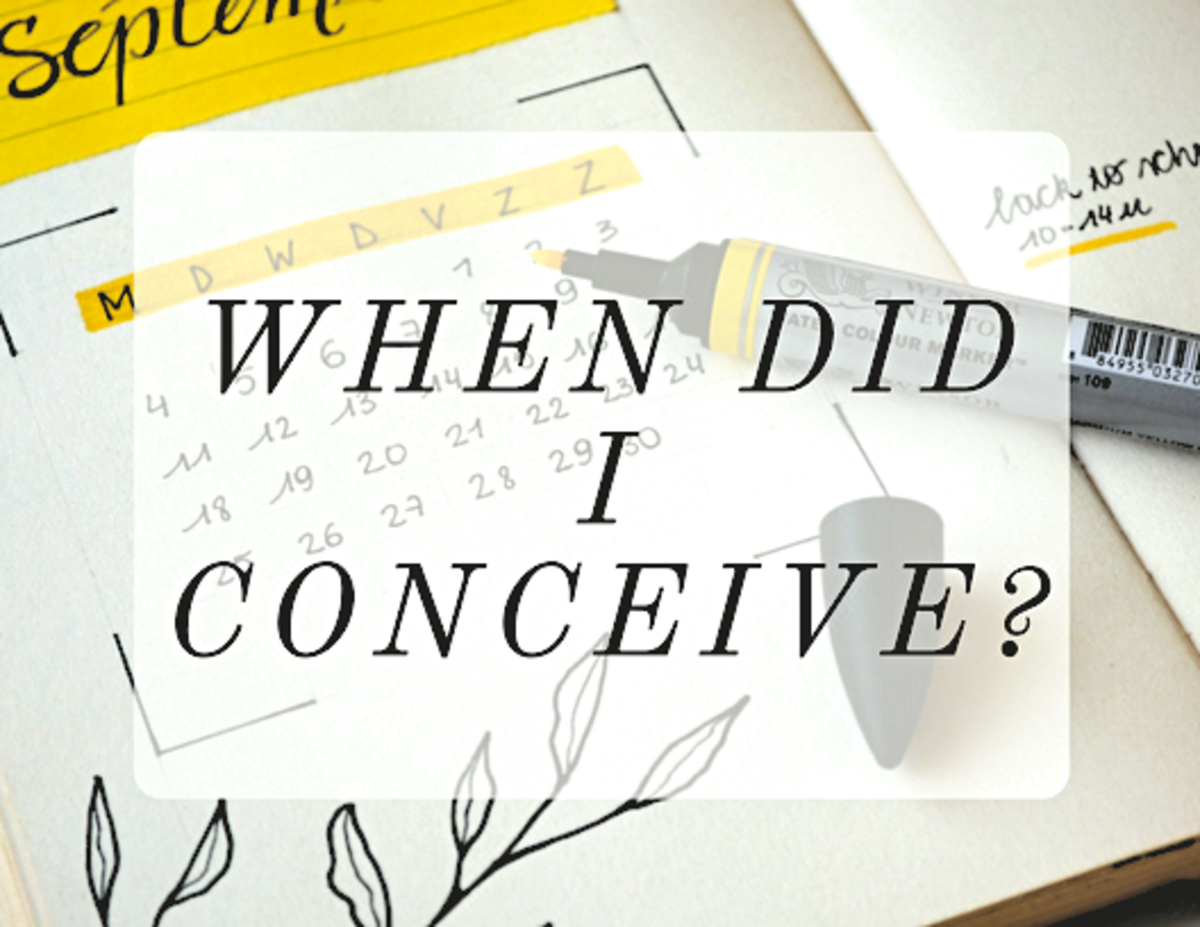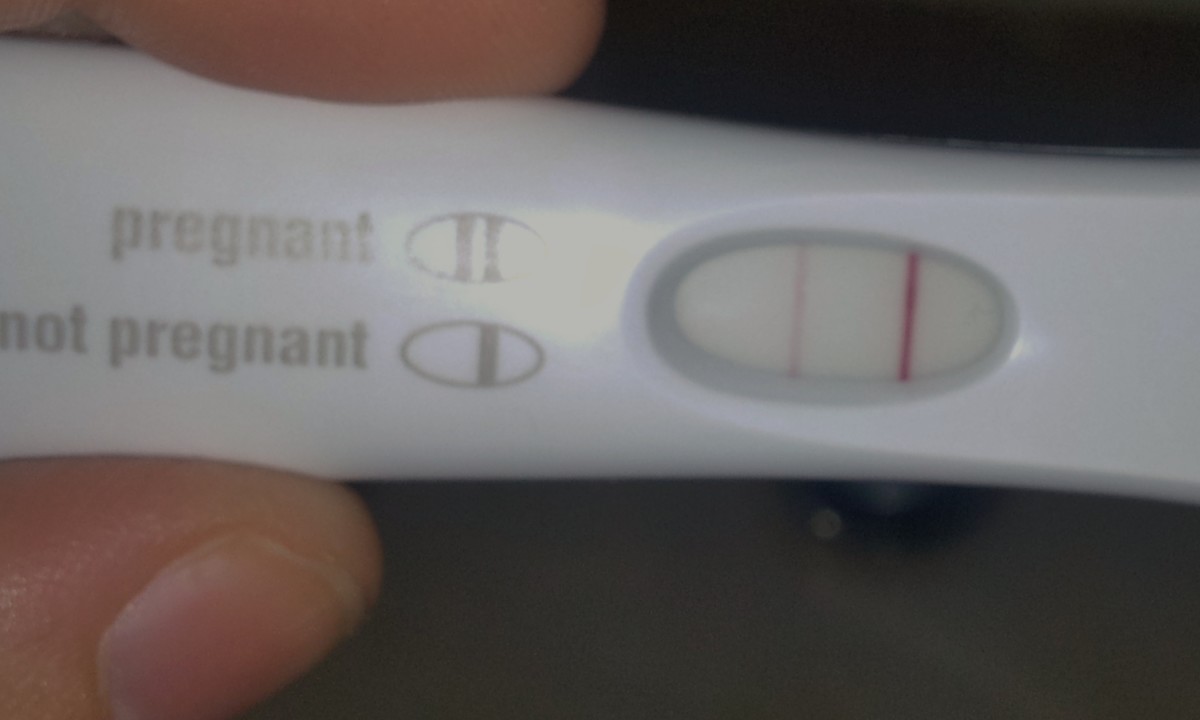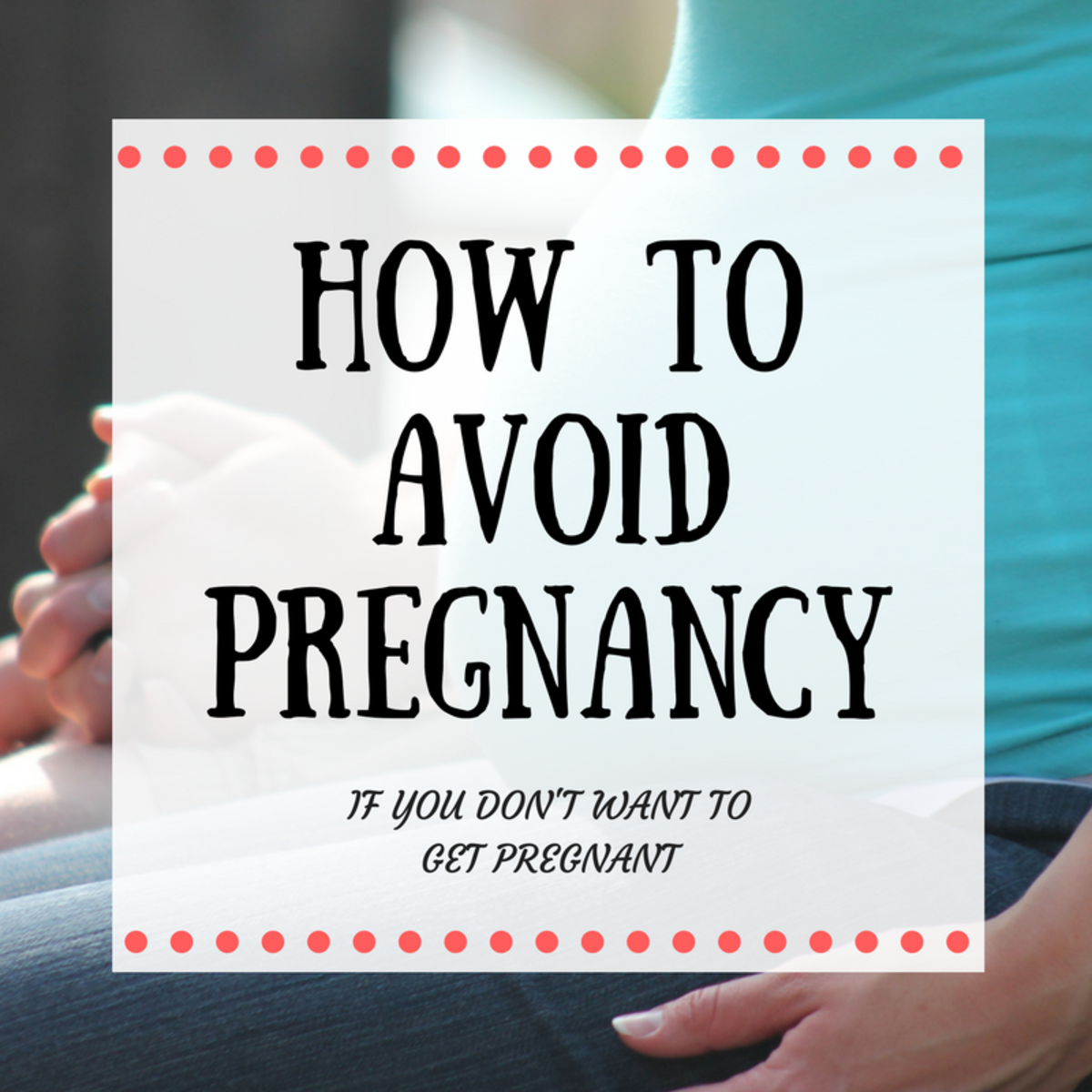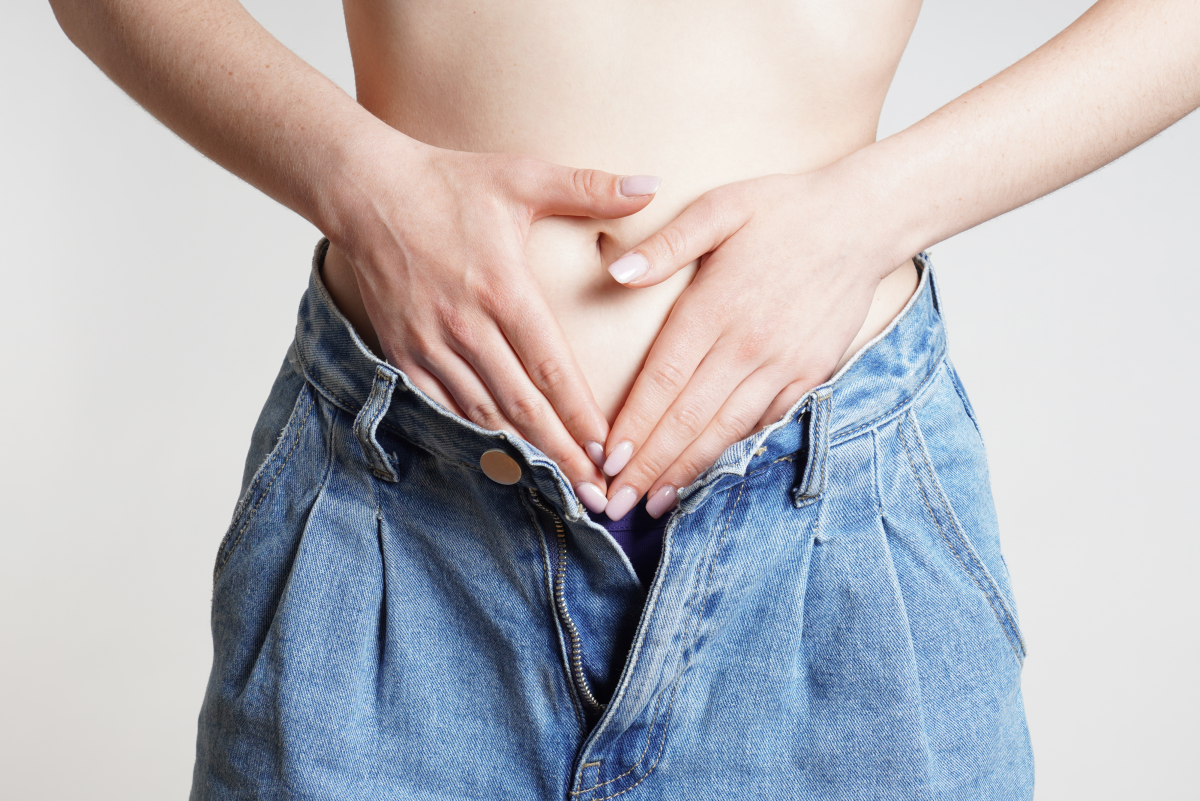What Happens During the Menstrual Cycle? What Health Class Didn't Teach You
In my opinion, nothing empowers a woman more than an understanding of her own menstrual cycle. High school health classes often don't do enough to teach young women how their cycles work, thus allowing us to understand how to become pregnant (when we're ready), or to enable us to increase the effectiveness of barrier methods of birth control by avoiding the fertile window.
The purpose of this article is to teach you about your menstrual cycle. I've explained some of this -- in brief -- in my article about how to track your ovulation. This article should help you to understand the nature of your cycles and what happens during the various phases of your menstrual cycle.
Please note that I am neither an educator nor a medical professional. If you have concerns about your menstrual cycle, you should contact your doctor or nurse for assistance.
I'm just 'everywoman,' just like you. I've learned this information through years trying to conceive myself. Hopefully it will be helpful to you.
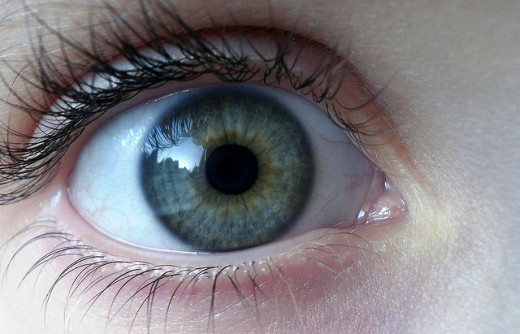
What You Don't Know Could Frustrate You
When I was quite young, my mother explained to me everything that she knew about menstruation. It's a good thing she did, considering that my first period arrived when I was only ten years old. I'd have been lost if she hadn't explained to me what my body was doing! Her teaching stopped, however, at what happens during the menstrual period, and many of the facts that I have at hand today (in large part thanks to the Internet) were unavailable at the time my mother gave me "the talk."
Did you learn about your menstrual cycle in high school health class?
High school health education left me with information about STDs, but little information about how my own body operated, and what I needed to know in order to avoid pregnancy or to become pregnant. That was, of course, a different time, before schools were permitted to teach about birth control or the details of pregnancy. However, this lack of information continues to be a problem for young women graduating without the power of being able to predict when they are most fertile (thereby avoiding or achieving pregnancy).
This leaves too many women playing a guessing game with their feminine health. Some, left with too little information about how to become pregnant or to avoid pregnancy, find themselves struggling with an unwanted pregnancy, while others face the heartache of struggling to understand why they have been unsuccessful in becoming pregnant.
You might be surprised how many women are trying to become pregnant and don't realize that ovulation is an event during their cycle, not a phase of the cycle.
This article strives to explain everything you need to know about the menstrual cycle.

"Gamete" refers to the basic reproductive cell -- either an egg cell or a sperm cell.
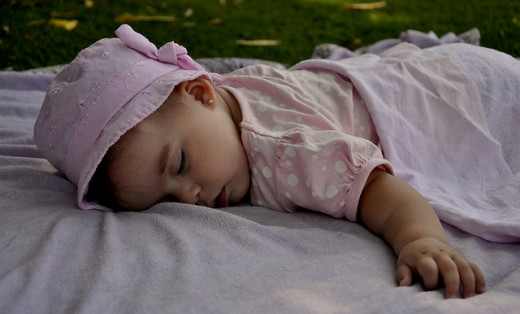
Did You Know? Girls Are Born With All Their Eggs
Did you know that girls are born with all of the eggs that they will possess throughout their lifetime? Unlike men, women do not continue to produce their gametes.
Girls are born with about 1-2 million ovarian follicles. Each follicle (a part of the ovary) contains a single, immature egg at birth. Throughout a woman's life, her follicles will die in a process known as follicular atresia. By the time a woman reaches maturity (the age of her first menstrual cycle) she may have as few as 400,000 eggs left in her ovaries, of the 1-2 million she started with!
Every time a woman cycles, only one follicle matures and ruptures into ovulation, while a thousand follicles die off.
This is how it is possible to be born with all the eggs your body will have house, well into the millions, and only menstruate a smaller number of times during your lifetime.
At what age did you have your first period?
When Does the Menstrual Cycle Start in Girls?
The average age at which girls get their first period is between 12-13 years. It is possible, however, for a girl to get her period as young as eight or as old as fifteen. In rare instances, girls have reached puberty at abnormally young ages, but these are considered genetic abnormalities.
A girl should begin her period within 3 years of the first signs of puberty -- generally the appearance of breasts. In most cases, menstruation will begin within two years of breast development. This page on WebMD lists the causes to contact your doctor if you have concerns about your first menstruation.
During Menstruation, the Body Sheds Part of the Uterine Lining
During menstruation, part of the endometrium (the lining of the uterus which thickens during the cycle in order to provide a place for a fertilized embryo to implant) is shed through the cervix. The fluid you see during your period is this lining. This allows for the cycle to begin again, starting with the period and moving into the follicular phase of the menstrual cycle.
If you become pregnant, an embryo implants in this uterine lining, thus stopping your period from happening. It isn't possible to have a period while you are pregnant, though you may experience some bleeding during pregnancy.
The way that I look at it, this is the body's way of "taking out the trash." while I couldn't find any medical reason that the endometrium would shed every month, it makes sense if you look at it in this particular way. Once the lining has been shed, your body has room to produce a fresh lining.
- Very Heavy Menstrual Flow
When periods are very heavy or you are experiencing “flooding” or passing big clots you have what doctors call menorrhagia. The purpose of this article is to define normal and very heavy menstrual bleeding, to explain what causes heavy flow, and to s
How Much Menstrual Fluid is Normal?
During a normal period, a woman should shed between 10 ml and 35 ml of fluid. This should soak between two and seven pads throughout the length of your menstrual period.
Remember that "normal" is often defined as what is normal for each individual woman. However, a particularly long period, or heavy flow, can be an indication of other problems with your cycle as well. If you are shedding more than 80 ml of menstrual fluid per cycle, you should talk to your doctor about Mennhoragia. I've included a link to information about heavy menstrual flow. This can be found to the right.
How Do You Know How Much Fluid You're Shedding Each Cycle?
You can consider how many pads or tampons you're using through your cycle. Each one -- soaked -- holds about 5 ml of menstrual fluid. Your best option, however, may be to use a menstrual cup, which not only helps to prevent you from needing to keep buying tampons or pads (since they are reusable) but also helps to protect the environment.
The video above gives you a good comparison of one kind of cup vs pads or tampons. I've included a link to the best selling Diva Cup to the right, so that you can purchase it to try for yourself. Diva Cups come in two sizes: One for Pre-Birth and one for Post-Birth. At the right you can purchase the pre-birth cup. Browse through Amazon to purchase the Post-Birth Cup.
I've personally used a menstrual cup, but since gaining a lot of weight, I find them difficult to insert. If you can insert a tampon, you should be able to manage a menstrual cup!
What is a "Normal" Length of a Menstrual Cycle?
"Normal" is generally said to be 28 days from the beginning of one menstrual period to the beginning of the next menstrual period. That's four weeks. This is just the average length of a woman's cycle, which can vary from 28-35 days and still be considered in the "normal" range.
Within this range, some variation is typical. Your cycles may not always be the same length. This is what is meant when someone says "irregular cycles." Being irregular isn't necessarily a problem, but if your cycles are longer than 35 days, you should contact your doctor for help and more information.
What Happens Between Menstruation and Ovulation?
Between your menstrual period and your ovulation, your body is working hard to prepare a new egg to be released into your Fallopian tube at ovulation.
Each of the eggs you will ever possess are contained within the ovaries, inside an ovarian follicle. During the follicular phase of the menstrual cycle, your body, one of your thousands of ovarian follicles will mature in preparation to release a fully developed ovum (egg) into the Fallopian tube at ovulation.
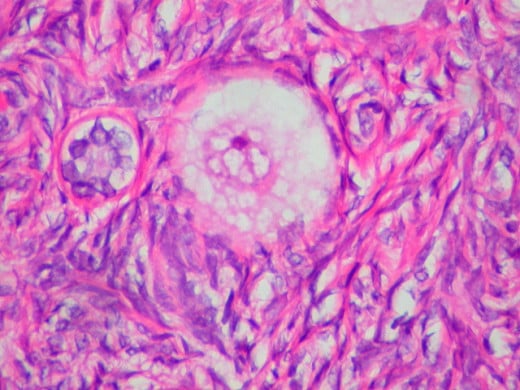
Ovulation: An Event in the Middle of Your Cycle
Ovulation is an event which happens roughly in the middle of your menstrual cycle. Many women are under the mistaken impression that ovulation is a period of time during which a woman is at her most fertile, but this isn't true.
When you ovulate, a mature ovarian follicle ruptures to release an egg into the Fallopian tube. Over the course of a few hours (up to 12), the ovum travels through the Fallopian tube and into the Uterus. If the ovum is to be fertilized, this happens while the egg is still in the Fallopian tube.
In a normal pregnancy, this fertilized egg (zygote) will travel to the uterus and implant on the uterine wall. In rare cases, the zygote may implant instead on the wall of the Fallopian tube, resulting in an ectopic, or tubal, pregnancy.
Ovulation generally occurs around the middle of the cycle, but this varies depending on the length of a woman's follicular phase. In order to determine when you ovulate, it is recommended that you learn to track your ovulations. While I personally advocate temping and charting (and this is the method that I've used when trying to conceive), you also have the option of using an Ovulation Predictor Kit. One popular kit is shown to the right, should you wish to purchase some on Amazon. This is Amazon's most popular OPK.
The Final Phase: The Luteal Phase
When I first learned about my cycles, the Luteal phase was the part of the cycle that surprised me, not because of what happens during the cycle, but because the length of this part of the cycle is generally consistent (meaning that it's the same length every cycle for individual women).
This phase generally lasts about fourteen days, but your luteal phase may vary. Mine is sixteen days from ovulation, meaning that if I know when I ovulate, I also know when I can expect my next period, since that occurs following the luteal phase.
During this phase of the menstrual cycle, the endometrium thickens in preparation for implantation of a human embryo. It's the endometrium that will nourish the embryo throughout pregnancy. If an egg has been fertilized, the egg should implant in the endometrium. If an egg has not been fertilized, you will have your period and the cycle will begin again.

Conclusion
Understanding your menstrual cycles will help to empower you as a woman by allowing you to use what you know to either become pregnant, or to assist you in avoiding future pregnancies.
Ultimately, you are in control of what you learn about your cycles, since these things are rarely taught in public (or private) high schools. All of this information is important for any woman who wishes to conceive a baby, but fails to do so within the first few months of trying, and ultimately it will help you to take control of your cycles and to enjoy your life as a woman more.


